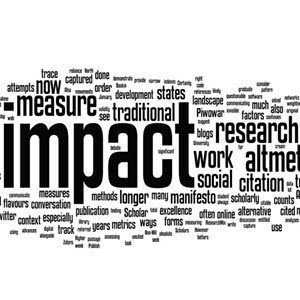Content:
Next to the drivers behind the change in research evaluation practices, strategies are discussed that researchers (can) use to improve their (potential) research impact in all phases of the research and publishing process. Such strategies may be applied when choosing or registering a research project, conducting the research, and during all phases of the publishing process. In the pre-print phase (while planning, writing and choosing journals to publish in), but also in the post-print phase (after the article or study is published). This course offers researchers the opportunity to learn strategies that aim at increasing the exposure of their research results or outputs to all relevant academic and societal target groups, to increase the likelihood of an output or result being used, cited, or discussed by these groups. Besides this, some tools to track your own research impact are discussed as well.
Learning objectives
After this course you will know:
- The drives behind the changes in research evaluation practices and why societal impact and Open Science practices have become much more important,
- how scientific and societal impact is discussed in the SEP protocol to evaluate research units and how this might be applied on an individual level,
- which strategies are used in the transition phase to increase the exposure to your research results and outputs, and
- which tools are available when you want to track your scientific and societal impact yourselves.
Target Group: PhD students, academic staff, and all others interested in how research impact is discussed and evaluated.
Language: English
Course format: Lecture, demo, questions and answers. Tailored suggestions will be provided upon request.
This workshop can be organised upon request. Send a message to research-i@maastrichtuniversity.nl to inquire about the possibilities.

